
by bsquared5@aol.com | May 4, 2017 | Thoughts
They paged me last night at a youth event to let me know my son had injured his toe. Apparently, he’d left a trail of blood from the incident site to the bathroom. I finished my conversation, found a toenail clipper and band aid in the car and headed into the boys’ bathroom to assist.
By then it was under control. Just a small patch-up and he was good to go, fortified with a lecture of why God made shoes. Other mothers of boys gave me nods and knowing smiles, the fist-bump of the Boy Mom Sisterhood. Blood and guts? Just another day in the life.
After seventeen years of this, I am unphased. I’m sure my own childhood contributes to my cavalier attitude towards mayhem and injury. I don’t know if my parents’ five offspring were an unnaturally accident prone bunch or if our magnificent lack of supervision toughened us up. Maybe some of both.
We grew up in the glory days of being sent outside to occupy ourselves in the sunshine, leaving my mother to do mysterious “alone” things like crossword puzzles, soap operas, and, I imagine, basking in an hour’s worth of silence with no one’s needs but her own. We ran from yard to yard with neighborhood kids brandishing sticks, dashing through sulfur lawn sprinklers, pulling sandspurs out of our feet and getting bitten repeatedly by mosquitoes, ants, and chiggers. We drank from the garden hose and constructed rickety skateboard ramps in the middle of the road, scattering left and right when cars came. Helmets were unheard of; shoes were an afterthought. Road rash from meeting the asphalt was common, sunburns a given.
Between us, we amassed four broken bones (at least ones that counted and required casts) from falling off a horse, flying over handlebars, tripping on a golf course, and falling off a tire swing. We used up spools of nylon in the ER getting stitches. One sister was attacked by a hive of hornets, another was knocked cold by hitting a plate glass window. My brother almost lost an eye from the broken end of a walkie talkie antenna, and the oldest sister, trying to free debris from beneath the lawn mower while it was running, had to have a couple of fingers reattached. We stepped on rusty nails, got bit by snapping turtles and crabs, threw rocks at wasp nests with unhappy results, and got burned by tailpipes. Once, we four sisters each grabbed one of my brother’s limbs and pulled to see how far he would stretch. Result: not far.
Unless the injury was dire, we got treated with home remedies. If you got stung, Mother would unroll one of her Tareyton 100’s and make a witch’s poultice out of tobacco. Splinter? She’d dig it out with one of her quilting needles. For scrapes and cuts, there was stuff called Merthiolate, a red-staining liquid that burned like the fire of a thousand suns. A few doses of that and we learned not to complain and just walk it off. It was the hydrogen peroxide of its time, and I’m pretty sure it was laced with mercury, so if it didn’t heal our cuts, our consolation prize was a damaged nervous system.
Weren’t all families so afflicted? It wasn’t that our parents didn’t care. Whenever some new calamity occurred, we would draw straws to see which of the remainder would have to go tell mom. She would be appropriately concerned but remain calm as we piled into the station wagon for the familiar trip to the hospital. It was only after we’d arrived safely back home that she became emotional, her left hand trembling as she chain smoked and muttered to herself. When dad got home, he’d check on the patient, exhale heavily, pat us on the head and declare that the experience would “put hair on our chest.” Since most of us were girls, such comments would elicit wails and more than a little anxiety. Bedside manner was not his greatest skill.
Surely it is from these almost daily occurrences that I learned not to overreact to a child’s inevitable knocks and mishaps. When mine were small and learning to walk, I was matter-of-fact when they crashed into a table leg or coffee table. Up you go! You’re alright! As time went on, we got through three broken bones (at least ones that count), dislocated elbows, and more cuts and bruises than you can shake a stick at. Their dad’s medical skills were constantly on call. My daughter still has surgical glue in her forehead from a gash when she was four. We patched them up and told them they’d be ok. I learned the more you gasped and fretted over them, the more fragile they thought they were. Less hovering and coddling meant more independence, confidence, and risk-tasking–elements, one could argue, children can usefully bring with them into adulthood.
I am not a detached mother who never bonded with her child, a wire monkey type. On the contrary, I mourn the dwindling regularity of sweet boy hugs, declarations of undying love from my children’s lips, and girl time with my daughter. I love them fiercely, as my mother did the five of us. All my father’s advice to “rub some dirt on it” and my mother’s off-handed tendency to let us make our own adventures instead of providing entertainment on demand certainly fostered independence. We knew that when we left the nest, we’d survive the fall.
As my own chicks approach the nest-leaving stage, they need us less. The circle of life and all that. The kicker with teaching them independence is that they actually become independent. I knew last night I didn’t need to rush over to my son’s gory toe. He knew from past experience what to do. As I handed him the limited first aid tools I had, he flashed me a lopsided grin, half chagrin, half machismo. I resisted the urge to tell him this would put hair on his chest. He was with his friends, after all. This kid, I thought, he’ll survive the fall.
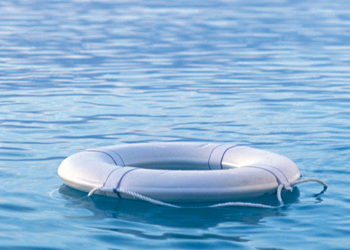
by bsquared5@aol.com | Feb 8, 2017 | Thoughts
My father’s brand of parenting was both efficient and effective. With five children, perhaps he lacked the time to coddle, or more likely, his military bearing precluded the impulse. I learned to ride a bike by careening downhill in the backyard, honing my steering by avoiding pine trees as they rushed by in a blur. He had imparted the facts at the top of the hill, pertinent information about pedaling, braking, and keeping your eyes up. Gravity and physics are master professors.
All three of my older sisters became ace softball players, singular in their ability to field, unafraid of pop-up ground balls. They’d lived through hours of practice in the hot Florida sun, my father beaming fast-pitch into their thin leather gloves until their palms stung. Loss of focus or flinching could mean a bobbled catch, a ball-sized bruise beneath their floral tank tops and directions to Walk It Off. It was softball as self defense.
My younger brother learned to swim before he turned two. A pool in our backyard and a toddler with stealthy escape skills drove my mother crazy with worry. So she sat chain smoking by the pool while my father hired an avant-garde teacher to toss her youngest into the deep end, his blue eyes wide under the water as he blew bubbles and paddled to safety.
We learned independence early. When it came time to pick a career path or a college, there were no fancy weekend tours, guidance counselor sessions, or laboring over applications and essays. The process was more of a self-directed cursory decision, driven by the calendar and necessity. No water wings, no kiddie pool–just sink or swim.
Faced with these polar options, we gained fortitude and an admirable proficiency at faking confidence even when–especially when–we felt it least. Once when one of my sisters was about 10, my father decided it was time for her to learn to water ski. We took the boat out on a less populated Florida lake and in she went, skinny arms held straight out in front of her and her knobby knees slightly bent atop skis that felt awkward and too large for her thin frame. With the motor idling, you could hear the deep croaking of the alligators on the bank calling to each other. Of course there were gators. Every body of water in Florida contains gators. You’ve never seen a faster study on water skis than my sister. She got up and stayed up, at least until he had to stop to refuel. As we slowed, she sank, her eyes growing wider as the dark lake water swallowed her whole. I have never doubted Jesus’ miracle of walking on water. I witnessed it first hand as my sister made it to the boat in record time.
We all learned to become high-achievers. When the alternative to failure is becoming reptilian lunch, the non-lunch option is popular. Some of us are just wired this way, call it Type A or chalk it up to perfectionism. The stakes stay high. It’s like living life in the middle of the James Bond car chase scene at all times–motivating, exciting, and intense, but exhausting. Every little letdown becomes a crisis with personal implications. Imagine: your car breaks down and heads will roll because someone somewhere should have seen this coming. Your toddler has a melt down and the entire grocery store must be judging your moral disgrace. You get a “B” in a class and all you see are the 10 ways you should have studied harder. In sink-or-swim living, there’s no room for error, no patience for sub-par.
Keeping the snarling dog of failure at bay means having to be constantly alert. Because life is black and white, options get reduced to an either/or: sink or swim. Stepping out with something new, a change in the landscape, sends primal signals to the survival center: fight or flight. Because the universe has a sense of humor, all the good things come with risk of failure and the most messiness–relationships, creativity, opportunity. When you’ve been conditioned to avoid failing, you do one of two things: (1) dodge the risk altogether and don’t try (stay safe), or (2) do try and stay in a perpetual state of freaking out when things go awry (stay in crisis). Both are unacceptable and frankly more than a little whack.
A provocative book called Nurture Shock discusses the outcomes of different ways to praise children. One group was told they were smart; the other, that they were hard workers. Hard work is something they could control; being smart is evidence of something out of their control. After being given increasingly difficult puzzles to solve, the “smart” group gave up earlier. They stopped trying. Failure to solve the puzzle would mean they were no longer smart. The “hard workers” never stopped trying. Failure didn’t diminish their identity; it was something they knew they could work through, and even learn from, given enough time.
It’s taken some reprogramming, but thankfully I’ve learned life rarely operates in black and white. In between sink or swim is a whole other option. Ironically, the infant swim teacher taught us this, too. We can float. Floating involves no freaking out, no shortness of breath or raging at onlookers. Turns out it’s mostly peaceful and we get a great view of the sky while we’re at it. Unless we’re fleeing the alligators, which, let’s be honest, are mostly creatures of our trumped up imaginations, floating allows us space to trust ourselves, the universe, and other people for help. The water itself–the very thing we were struggling against or afraid to jump into–becomes a source of buoyancy, bearing us along with the tide.
Struggle and failure hold gifts of wisdom and character that can be received no other way. When we give ourselves and our children the freedom to fail, we sprinkle grace into our lives. We learn to sit in the mess and take stock with reasonable objectivity, picking out the good parts and tossing aside the rest. Best of all, we learn to link hands with other failures–otherwise known as humanity–until forgiveness, humility, and grace become second nature. We lie back with arms outstretched, fill our lungs with a long, slow breath, and float.
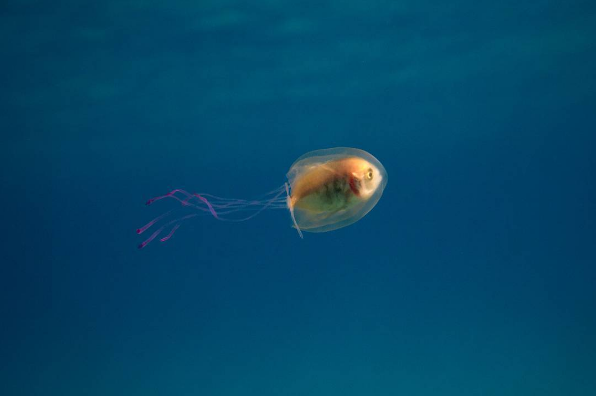
by bsquared5@aol.com | Oct 19, 2016 | Thoughts
This summer, photographer Tim Samuel was freediving off the coast of Australia when he happened by a curious sight: a fish stuck inside a jellyfish. Who knows how the poor guy got into this predicament–a lost bet?, a quick dart for cover?– but there he was, encased in the transparent innards of another being, struggling to set his course.
Much like the Pushmi-Pullyu of Dr. Doolittle lore, the fish tried valiantly to steer in one direction, but the jellyfish had other
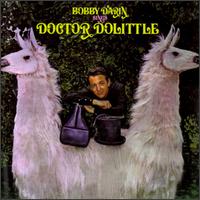
Doolittle’s pushmi-pullyu
ideas; that is, as much of an idea as a non-sentient creature can have. So the two ended up in a frustrating dance, the fish leading in one direction for a few hopeful moments, then twirling in circles led by the motions of the jellyfish.
Utterly stuck.
I stared at the pictures of that little fish for a long time, alternating between fascination and pity. This was no symbiotic clown fish-anemone bargain.
It was a Big Oops.
How long had they been existing like this? Had he surrendered to his plight as the new normal or did he hold out hope of escape? Do fish hope?
Sometimes we cruise along merrily, caught up in the current’s rush and not paying much attention, and something takes over, recharting our course. Maybe it’s a surprise pregnancy, a sudden loss, or a change in job status.
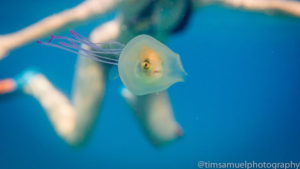
Image: Tim Samuel
Oh, hello, Jellyfish! Didn’t see that coming. We have to readjust, struggling to steer with limited visibility through the gauzy haze that’s fallen. Eventually, we part ways with the jelly because it was a temporary retreat. Like Jonah’s whale, it spits us out once we’ve sat long enough to learn the lessons within.
Then there’s the more worrisome situation. The light shines down through the waters one day just enough to light up our prison. We wake up out of our fog and see the walls of our own making. All this time we thought this was living. Realization settles in and a lump grows in our throats: Regret.
Imagine how the heart sinks. We never took that class, got the degree, popped the cork on a bottle of chilled champagne. One day we look around and our passports remain unstamped, our taste buds untitillated. As we drifted aimlessly inside the jellyfish, the current made the easy choices for us, leaving the hard, messy, rewarding roads open for those who swam unswaddled by limits. There, the lowest common denominator makes the rules, and too much of anything (joy, faith, love, discovery) is frowned upon.
Sometimes we’re lucky enough to get shaken awake and make a run for it. Unlike the unfortunate fish, we can escape from the trodden miles of waste that lie behind (wasted time, chances, calories) towards a different path. Outside the jellyfish there’s an abundant waste, one that comes from an overflow. Outside the jelly, we are in all the pictures because makeup and good hair doesn’t matter. There, we ride the rides, eat the chocolate, and take scary steps of faith because the alternative is a lack of oxygen and color that shrinks us.
Outside the jellyfish an alabaster jar pours a wealth of grace at our feet. It’s okay–encouraged–to pray big, sing loudly, jump into a pile of leaves like when you were young, and be so touched by beauty or kindness that it brings tears. It’s no big deal to learn to tango, start that novel, or dress up like a T-Rex because it taps into your happy. You don’t have to go 3.7 seconds on a bull named Fu Manchu, but at least you have the option.
We weren’t born to just pay bills and die. Somewhere between wanting to be a fireman when we grew up and sitting on the porch in our 80’s with a blanket across our knees there’s big wet sloppy kisses and zip lines and ice skating. There are broken hearts, outrageous risks, and the cold side of the pillow. There’s stuff in us waiting to be turned inside out and shown to the world because that’s what living out loud and living on purpose look like.
Stretch out your arms big and wide. Draw a breath from the well that lies low in the depths. Relax your shoulders and neck from where you’ve been balancing all the shoulds and oughts and expecteds and think about that fish. All that open ocean and he’s stuck tight turning in circles. Regret like that is heartbreaking. Let’s put on some Jailhouse Rock and blow this joint.
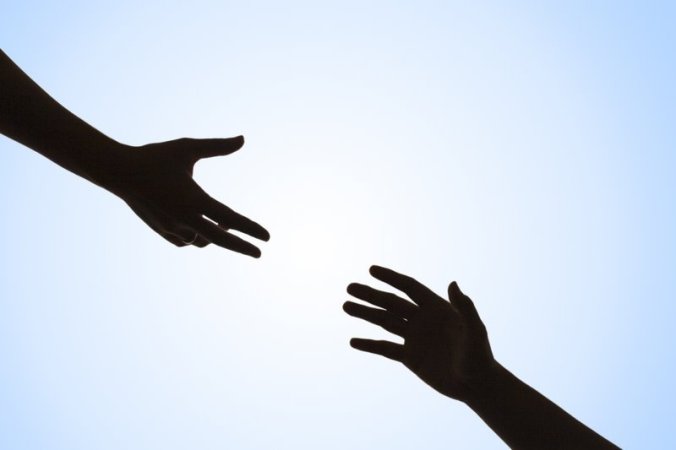
by bsquared5@aol.com | Aug 29, 2016 | Thoughts
My oldest went sky diving a few weeks ago. She took off with a group of friends and jumped out of a perfectly good plane while, 2 hours away, her dad and I checked our phones nervously for news of a safe landing.
This is par for the parenting game. About three seconds after I became a parent, every cell in my being zeroed in on the safety of that little bundle. And about three seconds after that, my kids seemed to delight in finding new ways to hurt themselves.
I did all the right stuff–electrical outlet covers, car seats, a lock on the chemicals under the sink, talks about strangers, the internet, drugs and alcohol, driving skills, and safe sex. Still, they found ways to get broken arms, ding the car, and make asinine choices. From their first steps (right into the edge of the coffee table) to the scraped elbows from the epic wreck on the bicycle, 90% of parenting felt like I was chasing them around with bubble wrap, which they’d fling off and set fire to.
I put my 3-month-old down for a nap once, grabbed the baby monitor and went to our unfinished upstairs to paint some window frames. My husband came home for lunch that day, poked his head up to say hello, then left a short time later. When I heard the baby stirring on the monitor, I headed down to get her and discovered he’d locked the door, which was always our habit. I was trapped, the baby out of reach with no one around, no phone.
Panic! I calculated how many bones would break if I jumped out the second story window. Tried throwing myself into the door to break it down. (It doesn’t work like it does in the movies.) Everyone else in the cul de sac was at work, except… A solitary teen aged boy was playing basketball several doors down. I screamed at him, hanging out the window and waving my arms like an insane person until he came over, let himself into my house, and freed me from my prison. (Clearly, his parents had not taught him about Stranger Danger.)
This same child locked herself in her room as a toddler, and I sat on the other side of the door, our fingers touching underneath, frantically fumbling with the skeleton key. There is nothing so agonizing to a parent as being helpless to reach a child who needs you.
Ask any parent of a chronically ill child, watching as they’re wheeled to yet another procedure. Or the parents denied access to their adopted child month after month while foreign governments sift through red tape. Divorced parents who share custody with an irresponsible or abusive ex. Parents of deployed soldiers. It’s all part of the package, except, eager to reproduce, none of us ever reads the fine print.
A friend who recently dropped off her kid at college lamented to me that she couldn’t stop worrying about something happening and not being able to get to her daughter. I get it. My own is scheduled to study abroad next semester and I’ll admit to feeling similar twinges, especially after Paris, Brussels, and Nice hit the news cycle. But that’s fear talking. And fear is not the Boss of me. “Love is what we’re born with,” says Marianne Williamson. “Fear is what we learn here.”
Parenting is nothing if not risk. From the time they’re born, we perform a kind of catch and release with our hearts. It’s a tight-wire balancing act: keep them close, send them out; swoop in to rescue, let them learn to fall. The end goal is, after all, to work ourselves out of a job.
https://youtu.be/he3zaola7YE
Full disclosure: I grew up in the 70’s and 80’s when we rode our bikes miles from home (sans helmets) and drank straight from the garden hose The surgeon general was barely even a thing. I’m in favor of running barefoot, grabbing mane on a galloping horse, climbing trees, and “Swing higher, Daddy!”
Yes, there are moments of panic and anguish as a parent, times when you can’t protect your child or prevent every misstep. Did we really believe it would all be giggles and lollipops? We can’t fetishize safety because of a world that feeds off fear like it’s sugar. When did failure became the new F-word? Failure is the only way forward.
The flip-side of risk is where the good stuff hides out. The flip side of risk is connection, creativity, a life with flourish. Sometime, we have to let go of the back of the bike and quit running along behind. I’m too old for that noise, for one thing. And parenting was never supposed to be about my fear–it’s about their launch.






